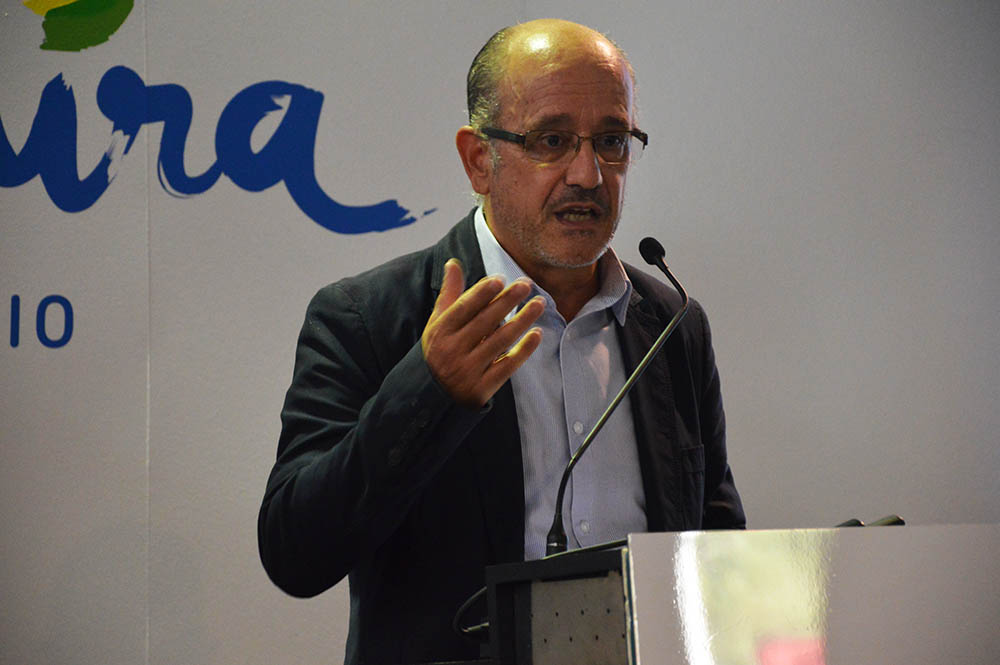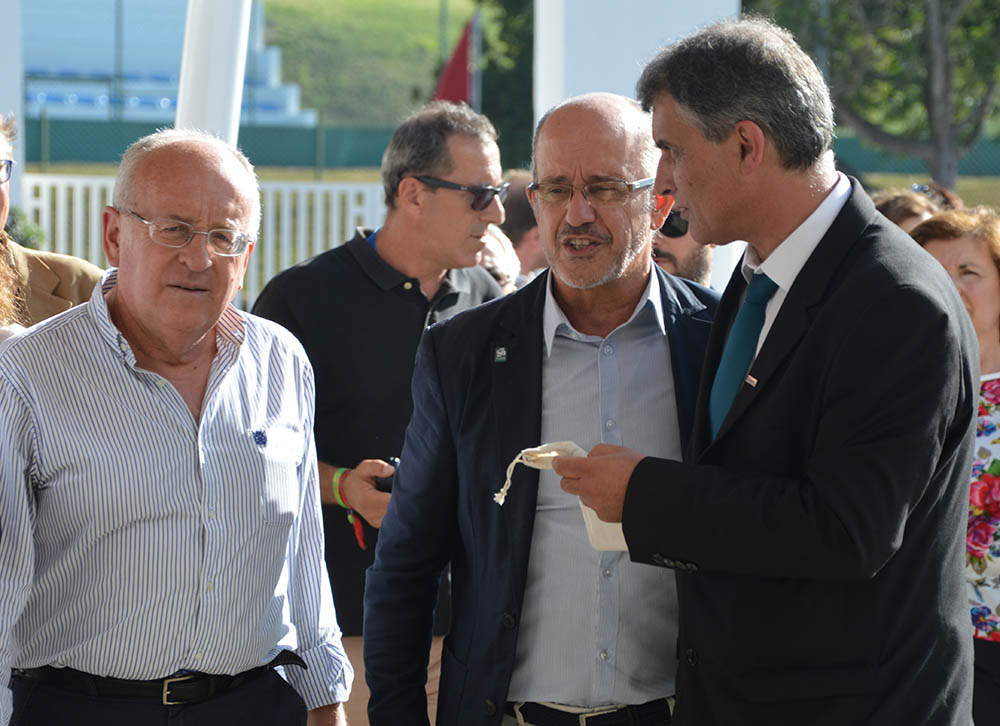The order that formalizes the constitution of the Working Group to deal with issues of spatial planning and conciliation between activities in the municipality of Odemira "is already on its way to the Ministry of Agriculture", announced today, in São Teotónio, the vice president of the Commission of Coordination and Regional Development of Alentejo.
With the issue of new intensive agriculture and greenhouses as a backdrop, the Working Group, which includes the Municipality of Odemira, CCDR Alentejo and the Institute for Nature and Forest Conservation (ICNF), among other entities, « The whole ordeal has already gone through” of the various bodies that have to give their approval and “very soon the order will be signed by the Secretaries of State” for Agriculture, Spatial Planning and Nature Conservation, Environment and Local Authorities, he added Jorge Pulido Valente.
The announcement was made this afternoon during the opening of FACECO – the Economic Activities Fair of the Municipality of Odemira, where, in the morning, the topic was discussed in a colloquium, promoted by Lusomorango, one of the largest agricultural companies operating in this territory.
The Working Group will «deal with the issue of new intensive agriculture in the municipality of Odemira, to reflect on the problems that the diagnosis made as being the main ones: the issues of labor or in relation to It's already here, whether that's needed, the integration of these people and their eventual settlement in the region, the issues related to the accommodation of these populations, and all other environmental, cultural, social, economic, planning aspects that arise from development of this new agriculture”, explained the vice president of CCDR Alentejo in statements to Sul Informação.
One of the hottest issues is the fact that much of the territory of the municipality of Odemira, especially its coastal strip, where most greenhouses and other intensive agricultural holdings are located, is also a Natural Park (Southwest Alentejo and Costa Vicentina) . And, until now, what has been losing is the environment, nature conservation and the activities that depend directly on them, such as nature tourism.
Jorge Pulido Valente guaranteed that everything will be taken into account by this Working Group, which until now existed only at an informal level. "All instruments for territorial management will be on the table, which will be analyzed from the perspective of whether or not they respond to the current challenges posed by this new agriculture or whether there will have to be new public policies, different guidelines or possible changes in the territorial management instruments'.
And will these changes be made from the perspective of the new agriculture? The head of the CCDRA guaranteed that "the approach is holistic, it does not focus on solving the problems of the new agriculture, it focuses on the issue of the sustainability of the territory and sustainable development".
“The new agriculture is a very important sector, with a lot of investment and a lot of dynamics, in the creation of wealth and jobs, but it is not an exclusive sector for the region's development. There has to be a search for balance between the various sectors here,” he added.
Could the measures involve any limitation on agricultural activity, for example? Jorge Pulido Valente replied that “it is still too early” to talk about concrete measures.
The working group, as soon as the order formalizing its creation is published, will have 90 days to proceed.
Less confident in the brevity of the process is José Alberto Guerreiro, mayor of Odemira. "Just the appointment of the Working Group is already four months of waiting", commented the mayor, in his speech at the opening of FACECO.
But the vice president of the Coordination Commission assured that the entities were not stopped: «CCDRA, with the Chamber of Odemira and ICNF are already preparing a survey so that it is possible to make a rigorous diagnosis of the entire situation».
This is because, in addition to not knowing exactly the area occupied by greenhouses and other intensive crops, the numbers of immigrants who work in this activity are also disparate. The numbers of immigrants, depending on the sources, vary between 5 and 8. And, in the future, it is already said that 12 thousand will be needed.
Jorge Pulido Valente expressed the hope that, at FACECO next year, it will be possible to “evaluate the concrete measures already applied, measures that result from this Working Group”. It is important, he argued, that in 2019 a second stage of concrete measures is being "evaluated, reflecting and preparing".
«Our ambition is then, from here, to do the same work, both for the Alcácer do Sal area and for the Alqueva area, where the problems are starting to be identical, although not with the same intensity, for now. What is learned here is important to apply there», stressed the vice president of CCDRA.
That responsible also suggested, in his statements to the Sul Informação, that this experience could even be extended in the future to other regions, such as the Algarve. The neighboring municipality of Aljezur, also part of the Natural Park of Southwest Alentejo and Costa Vicentina, is also experiencing problems with the expansion of the so-called new agriculture. But in the Algarve region there are other municipalities, in other natural parks or outside them, suffering the pressure of the greenhouses.
Photos: Elisabete Rodrigues | Sul Informação





















Comments